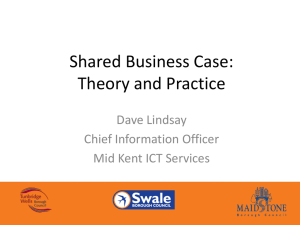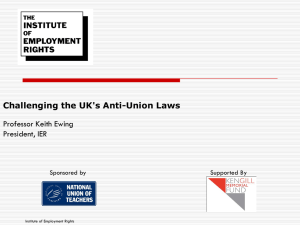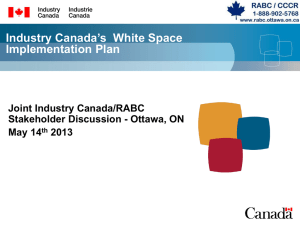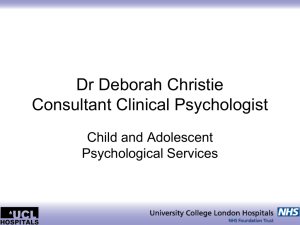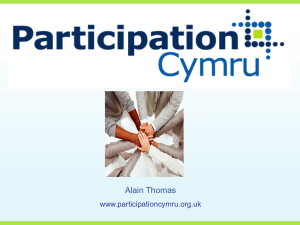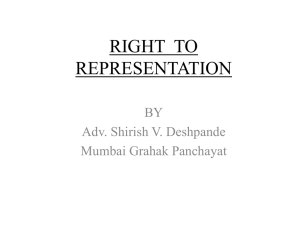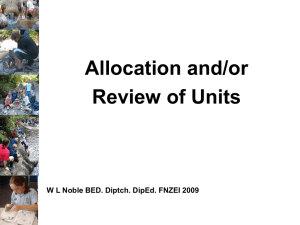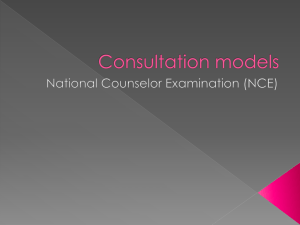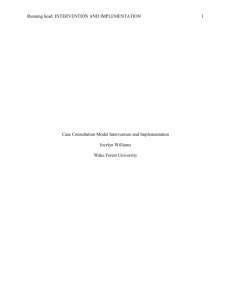Mental Health Consultation Client-centered case
advertisement
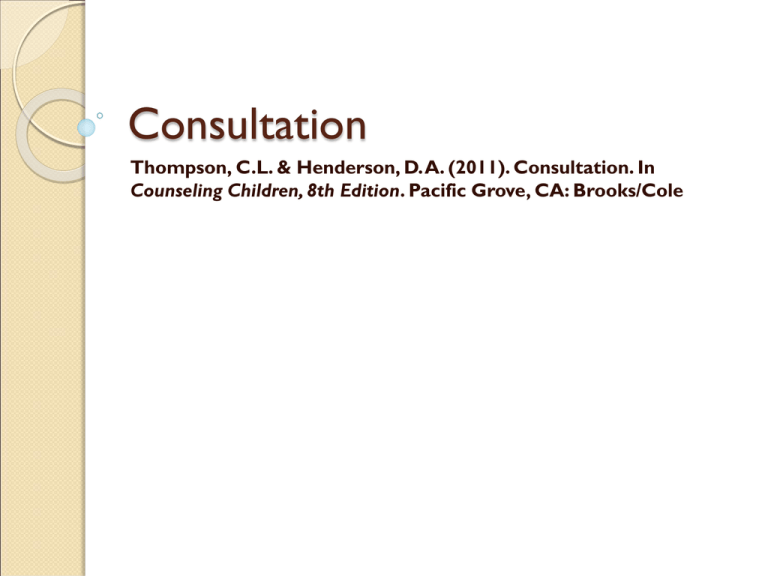
Consultation Thompson, C.L. & Henderson, D. A. (2011). Consultation. In Counseling Children, 8th Edition. Pacific Grove, CA: Brooks/Cole Bronfenbrenner’s Ecological Model Copyright 2011 Brooks/Cole, a division of Thomson Learning Individual Consultation Consultant Consultee Client Copyright 2011 Brooks/Cole, a division of Thomson Learning Individual Consultation Consultant Consultee Client Consultant Consultee Copyright 2011 Brooks/Cole, a division of Thomson Learning Group Consultation Client Consultant Consultee Client Client Copyright 2011 Brooks/Cole, a division of Thomson Learning Mental Health Consultation Client-centered case consultation Consultee-centered case consultation Program-centered administrative consultation Consultee-centered administrative consultation ◦ Usually type of individual consultation with focus on client’s skill deficits. ◦ Usually type of individual consultation with focus on consultee’s skill deficits. ◦ Usually type of group consultation with focus on client/group’s skill deficits. ◦ Usually type of group consultation with focus on consultee’s skill deficits. Copyright 2011 Brooks/Cole, a division of Thomson Learning Myrick’s approach 1. 2. 3. 4. 5. 6. Identify the problem clearly. Clarify the situation. Determine the desired outcome. Gather any needed information. Develop a plan of action. Evaluate and revise as needed. Copyright 2011 Brooks/Cole, a division of Thomson Learning Collaboration collaborator collaborator Client Copyright 2011 Brooks/Cole, a division of Thomson Learning School Consultation Erchul, W. P., & Martens, B. K. (2002). Chapter 2: Promoting change in schools. In School Consultation: Conceputal and Empirical Bases of Practice, Second Edition. New York: Kluwer Academic Publishers Definitions of Change Alterations of ◦ Beliefs ◦ Attitudes ◦ Behaviors Within ◦ Children ◦ Adolescents ◦ Adults Definition of Indirect Services Services provided to the client through another person or agent. Examples: ◦ ◦ ◦ ◦ ◦ Consultation Pre-referral Intervention In-service Training Program Evaluation Research Areas in Need of Change Third-party adult may lack or fail to demonstrate essential skills needed to change the client. Third-party adult may hold unrealistic beliefs that keep them from trying to change the client (e.g., children with disabilities cannot….). Third-party adult may have unusual attitudes towards the child (e.g., stereotyping) and/or the service (e.g., special education will magically fix the problem, I cannot provide special services in my classroom). Consultation Consultant directs the experience Based on a respectful, cooperative relationship. Process depends upon one persons ability to use social power to effect change in another. Works within the strengths and weaknesses of consultee. Collaboration Both parties share power Based on a respectful, cooperative relationship. Process depends upon individuals working collectively to solve problems. Works within the strengths and weaknesses of all parties. Consultation Vs. Collaboration Strategies for Change: Chinn and Benne Empirical-rational approach ◦ Change will happen when consultee sees the need. ◦ “Knowledge is Power” Normative-Reeducative ◦ Change happens because the consultee sees the need and sees that others value it. ◦ “Knowledge and People are Power” Power-Coercive Approach ◦ Change happens because of guilt or sanctions. Types of Social Power Coercive Power: change happens because of perceived punishment. Reward Power: change happens because of perceived reward. Legitimate Power: change happens because power is given based on professional role or position. Expert / Informational Power: change happens because of perceived expertise or increase knowledge. Referent Power: change happens because of a desire to be like the other person and/ or because of a perceived personal connection. What Makes Change in Schools? Two most effective power sources for consultation in schools. ◦ Expert / Informational Power ◦ Referent Power Most effective power sources for administration in schools. ◦ Coercive Power ◦ Reward Power ◦ Legitimate Power Consultation Transcripts Conoley, J. C., & Conoley, C. W. (1992). Appendix A. In School consultation: Practice and training, Second edition. Boston: Allyn and Bacon. Assignment for Discussion Read through the transcripts provided in the readings on electronic reserves. This week’s discussion should be about these transcripts, and how they relate to the topics discussed in the consultation lecture.

